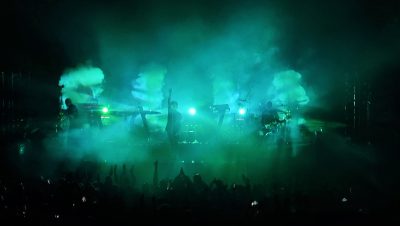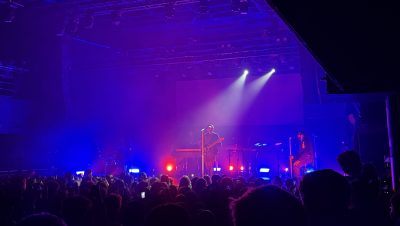Music / Reviews
Review: Özcan Ates, Bristol Beacon – ‘A heartfelt journey into the soul of Anatolia’
Özcan Ates is no stranger to Bristol’s music scene – a member of Dovetail Orchestra, a regular performer at the Cotham Club and an esteemed guest with the Bristol Recovery Orchestra.
But his latest concert was something different – a heartfelt journey into his Turkish and Kurdish roots, guiding a captive audience into the heart and soul of Anatolia.
The Lantern Hall of Bristol Beacon proved the perfect backdrop for this musical exploration, with its soft hues and superb acoustics.
is needed now More than ever
Ates, a virtuoso of the bağlama, a long-necked lute central to Turkish music, is also a poet at heart. His sensitive, controlled vocals complemented the delicate plucking of the bağlama with great emotional depth.
Ates’ latest concert was a heartfelt journey into his Turkish and Kurdish roots
He is perhaps the successor to his antecedents, who fused music, storytelling and spiritual ecstasy — the walking philosophers and itinerant preachers among the masses.
After a moving prelude on the bağlama, Ates was joined by some of Bristol’s finest musicians, forming a kind of “Galacticos” supergroup: drummer Alex Goodyear, Charlie Grove on acoustic guitar, Harry Basset on trumpet, Liam O’Connell on bass and Jonathan James on piano, a conductor, pedagogue and the creative force behind many musical projects including Dovetail Orchestra.
The fusion of sounds created a musical kaleidoscope that carried the audience through a journey.
The minor-scale laments explored universal themes of love, loss, longing, resentment, stoicism and righteous indignation.
The song Dağlara Küstüm unfolded like a slow-drip lament of a soul weighed down by life’s unforgiving realities.
“The Roads of 9-6 Shifts” was critique of the capitalist system
Oh My Dear expressed unfulfilled longing, set against the imagery of a wedding taking place in heavy rain, where the poet’s tears mingled with raindrops. The overcast sky is a metaphor for his state of mind.
In Ay Dilbere, Ates voiced the ache of unrequited love, tempered by stoic acceptance — the bittersweet refrain of “you deserve better”.
The supergroup provided the perfect sonic canvas. The performance was mesmeric, beguiling and serene with the bağlama’s resonance amplifying the beauty of each song.
After the break, Ates was joined by Özlem Pitlak (cello), Olivia Diskin (oboe) and Maretha Van Der Walt (violin) for The Rose and the Nightingale. Here, a tender dialogue between strings and oboe intertwined with the cadence of Ates’ lute, creating a passage of luminous beauty.
As a musician in exile from his homeland, themes of longing for home and belonging are never far from Ates’ work. Yet in his hands, this longing became something more: a sublime meditation that questions, challenges and ultimately heals the listener. Sometimes posing the existential question. What is home?
The setlist did not dwell solely on love and loss. One standout piece, The Roads of 9-6 Shifts, reflected on the relentless grind of capitalism where the individual is reduced to a cog in a giant machinery with no room for agency or redress.
The audience joined in with rhythmic clapping for Deribo, creating a joyous celebration of life
The choice to sing in Turkish and Kurdish added an authenticity that would have been lost in translation. By resisting anglicisation, Ates managed to preserve the essence and vitality of the pieces.
The finale brought all performers back on stage. The audience joined in with rhythmic clapping for Deribo, creating a joyous celebration of life, after finding true love amidst life’s hard grind. Didn’t Harry Basset with his commanding tone on trumpet capture the moment of joy to a tee?
As the last cadence faded, the hall erupted. The audience leapt to their feet, moved by a performance that deserved to be heard in a concert hall filled to the rafters.
All photos: Milan Perera
Read next:
 Our newsletters emailed directly to you
Our newsletters emailed directly to you



















